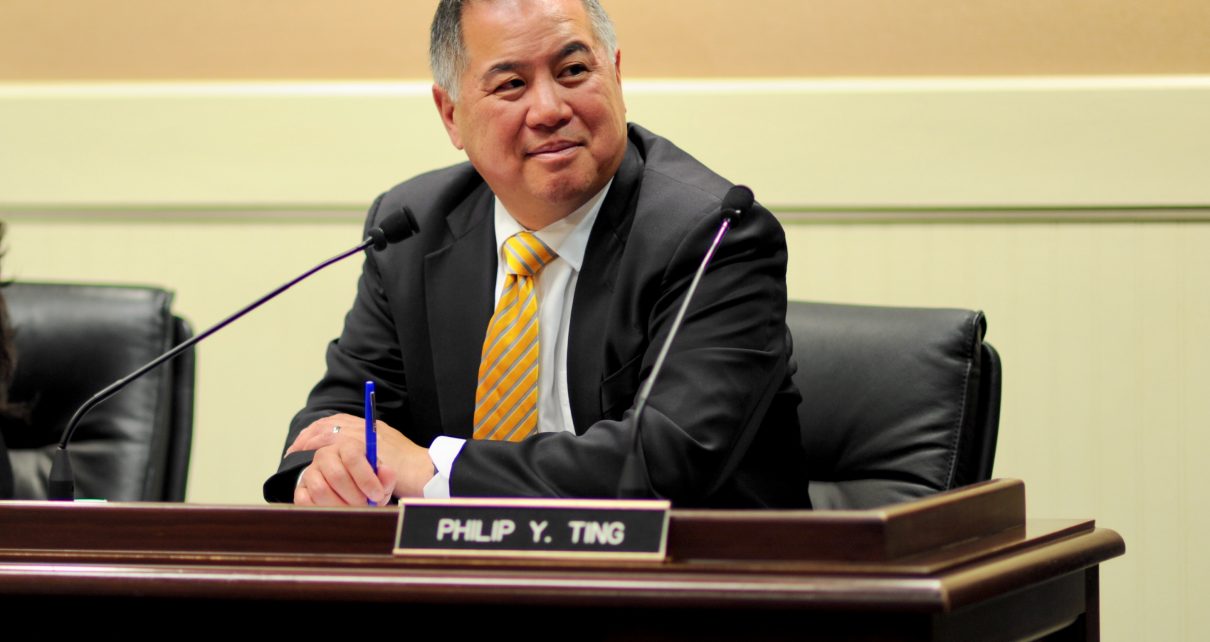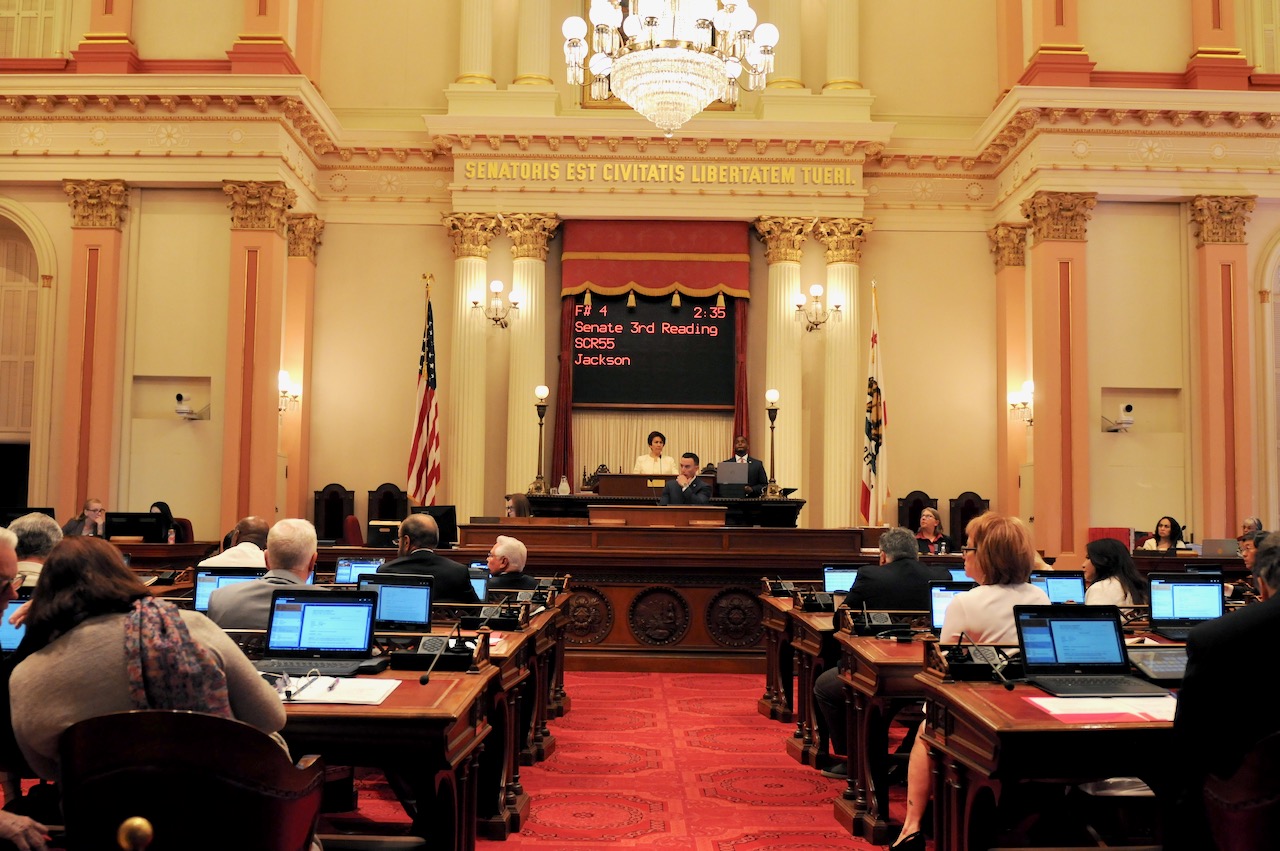
Assemblyman Philip Y. Ting. (Kevin Sanders for California Globe)
California Legacy & Donor Admissions Could Be Challenged This Fall
Donor admissions in the crosshairs of many lawmakers following end of affirmative action
By Evan Symon, July 31, 2023 12:00 pm
Assemblyman Phil Ting (D-San Francisco) announced in a statement on Monday that he plans to go after legacy and donor admissions in colleges and universities once again this fall, due in large part to the recent Supreme Court decision ending affirmative action nationwide bringing renewed focus on the practice.
Legacy admissions, university applicants who are given preference to to family members being former alumni, and donor admissions, applicants whose families donated large amounts of money or infrastructure on campus, have long been controversial in many Californian colleges, as well as colleges nationwide. Top universities like Harvard University have had a 33% acceptance rate of legacy students in recent years, much higher than the general 6% acceptance rate. Elite schools within California also have similar numbers according to the Association of Independent California Colleges and Universities. According to the Association, 14.4% of the entire fall 2022 admitted class at USC were legacy or donor admissions, with Stanford coming in with 13.8%.
While legacy and donor admissions have always been controversial, little was done to deter students because of many other ways to get accepted, as well as colleges and universities being more and more dependent on donor and alumni networks to help stay afloat.
Even after Proposition 209 removed affirmative action from public universities in California in 1996, the questions still remained relatively muted due to private institutions not being affected and many students benefitting from the overall shift.
However, the Students for Fair Admissions, Inc. v. University of North Carolina ruling by the United States Supreme Court handed down last month brought about a sudden change. Many universities that held up affirmative action as a way to balance the number of legacies going in was upended. While universities can still factor in application essays that mention race to the total acceptance process, race itself can no longer be a factor, even at private universities.
With affirmative action now gone, and donor admissions continuing to thrive, many lawmakers are looking at ways to curtail legacy and donor admissions, with many seeing it as an unfair advantage. In California, the effort is being led by Assemblyman Ting. On Monday, Ting noted that he wants to combat those types of admissions by bringing forth new regulations that would cut off any state financial aid to universities that gives legacy or donor admissions advantages to applicants.
“This is about educational access,” explained Ting on Monday. “We grow up thinking that merit gets us into Stanford or Harvard or any of these elite institutions; that it’s really about having the best grades. But what you see is that there’s a very big back door for people who can just write the check. We shouldn’t be subsidizing or condoning that kind of behavior.”
However, many universities have denied that alumni connections and donations guarantee admission. Many schools specifically noted in recent years that due to admissions scandals, such as the recent Varsity Blues scandal that rocked several California universities, they have reorganized the admissions process to make it more fair.
A possible challenge to legacy admissions
“While we appreciate our alumni and donors and could not exist without them, those relationships do not guarantee admission to USC,” said USC in a recent California state report. “In fact, those relationships will not help an unqualified applicant gain admission. Although philanthropy is necessary to sustain any university, there cannot be, and will not be, a system that permits any person to ‘buy’ admission to USC.”
Higher education experts also noted that most students who can be considered ‘legacy’ or ‘donor’ admissions have the necessary grades and background to get in fully on merit.
“That’s what these people pointing at legacy admissions, those coming in related to donors, always seem to forget,” Katherine O’Keefe, a researcher on college admission metrics in Illinois, told the Globe. “Those kids getting in have the grades, They have great admissions essays. They’re well rounded and make ideal students.”
“Part of it does come from, yes, wealthier backgrounds so they go to better high schools and can afford tutors and prep classes more often. But, the point remains. They’re still getting in on merit, and not because of Daddy’s money or because an uncle bought a football field for the school, or because everyone else in their family went there. It’s merit.”
“If that law gets passed in California, not much will change primarily because of it all still being based on merit. Money does talk, but merit doesn’t walk. California needs to prove that these supposed merit or donor based students aren’t up to snuff to getting in, and that will prove to be very difficult and hard to prove.”
“If there is a student getting a 2.5 [GPA] and then getting into Columbia or Yale or Stanford, then we can talk about it. But also remember this. A lot of less wealthier students getting in on financial aid are only getting that financial aid in the first place because of, guess who – wealthy donors and alumni. Harvard even said so in a 2017 report. So if they go hardball in California, many might be less inclined to give donations, which means the financial aid pool will be more shallow, which means less kids might get scholarships and assistance. I hope they know what they’re getting into with this.”
Ting is expected to begin his legacy and donor admissions work this coming fall.
- Safeway Announces Closure Of Fillmore District Store In SF Due To Safety Issues, Thefts - December 12, 2024
- Rep. Kiley to Introduce Bill to Eliminate All Federal Funding For California High-Speed Rail Authority - December 11, 2024
- Trump Selects CA Lawyer Harmeet Dhillon As Assistant Attorney General For Civil Rights - December 11, 2024




